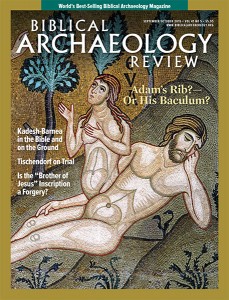Strata: Digging Kids Discover Ancient Jerusalem Winepress
A 1,400-year-old winepress was discovered last May in the Neve Yaakov neighborhood of Jerusalem. Out for exercise, a jogger noticed the freshly excavated winepress and notified the Israel Antiquities Authority (IAA). Having never heard of—or approved—this excavation, the IAA rushed inspectors to investigate.
They arrived at the site to find a sixth- or seventh-century C.E. winepress that had been methodically excavated. As they puzzled over who was responsible for the unauthorized excavation, they spotted a young teenager, around 13 years old, observing them. He eagerly confessed that he and his friends had excavated the winepress. Self-proclaimed archaeology buffs, the boys had started digging around just for fun. When they stumbled across an ancient winepress, they proceeded to excavate it.
While this seems like lighthearted fun, it is actually illegal to excavate in Israel without a permit. Since archaeology is a destructive science, anything not recorded from an excavation is lost, and that piece of history can never be regained. Looting destroys the historical record by removing artifacts from their original context.
Conservation is also an important part of the archaeological process—to preserve history for future generations. Even if something is excavated well, if it is not properly conserved, the archaeological record suffers.
Already a library member? Log in here.
Institution user? Log in with your IP address.

